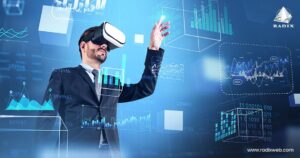Latest Technologies in 2025!

Latest Technologies in 2025!
We have completed more than half of 2024. We have seen many changes throughout this year. Political changes, economic changes, financial changes. These changes vary from good to bad. But one thing that remains constant is the evolution of technology. It does not matter in which year you are and what changes you see around yourself but one thing that remains constant is you get to see new technologies in the market in every span of time. So, what to do with these technologies? It’s time for you all to understand that you all have to upgrade yourself with emerging technologies. Now that mentality does not work when you just got a job and you just feel like no one can replace you or can fire you. It is a myth in which you are living.
Latest Technologies in 2025!
There is no guarantee or surety that you can receive from anyone. Even after you have 10 years of experience then also you have to work hard or maintain a balance with the latest or upcoming technology in the market. And it sounds difficult to get an understanding every time whenever some new technology comes into the market. But it is just like an upgrade from a basic tool to the little bit more advanced tool. If you are already there in any field then you obviously have some knowledge of that particular field so, you will not feel any difficulty embracing the new technology.
So, mostly it is the IT field in which new technologies emerge frequently. When you hear technology, it directly takes or mind related to the internet. So, today all the things on the internet have new technologies coming in every short period of time. And the people who work on these technologies are IT professionals. Or the students who are studying or planning to go into the IT sector have to keep a regular check on these technologies to cope up with their current work. So, let’s jump on to the latest technologies in the market right now.

Latest Technologies in 2025
Virtual Reality (VR) 2.0
Virtual reality (VR) technology has advanced to include enriched experiences that are highly engaging and authentic. The rising use of VR in games, training, and therapy is because of the better screen resolutions, motion tracking and interactive elements. More user-friendly virtual reality systems are now available with lighter headsets as well as longer battery lives; this could possibly lead to increased adoption by consumers and possible integration into daily life.
Augment reality (AR)
The retail industry is being transformed by AR technology that enables customers to view products in a real-world setting through their devices. Virtual dressing rooms or applications that let users see how certain furniture would look like in their homes are other examples of this trend. These interactive experiences take consumer satisfaction to greater heights, improve sales, and bring down the rate of return.

Internet Of Things (IoT)
In smart cities, IoT technology involves the integration of several sensors and devices that gather information for effective control of assets, resources, and services. This encompasses observance of traffic and public transportation to decrease congestion, application of smart grids to energy optimization as well as implementation of connected systems designed for public security issues and emergency services. As urban areas keep expanding, the Internet of Things assists in handling intricacies while enhancing resident’s lifestyles.
Artificial Intelligence (AI)
AI produces creative content, like text, images, videos, and music of high quality. These techniques employ Generative Pre-trained Transformer (GPT) algorithms as well as DALL-E to understand what resonates with humans’ preferences and produce such content. The areas of use are quite extensive; starting from article generation to creation of learning materials and promotions to making music or creating realistic pictures. As a result, it reduces the creation time for the content and its expense while giving more people access to creative tools. It lowers barriers to entry in this field thereby democratizing access to creative tools that allow individuals and small businesses to develop content at scale.
5G
5G, the fifth generation of mobile networks, promises more coverage, more consistent connections, and noticeably quicker upload and download speeds. By supplying the high-speed, low-latency connections that revolutionary technologies like augmented reality, IoT, and driverless vehicles demand, 5G expansion is making these technologies possible. In order to facilitate real-time connections and expedite the processing of vast amounts of data, this technology is essential for fostering a new wave of technological innovation.
Quantum Computing
For some jobs, quantum computers may process information tenfold quicker than conventional computers by utilizing the features of quantum physics. This year, quantum computing is being used in fields like drug research, where it might expedite the process by precisely modeling molecular structures, and cryptography, where it may be able to break codes that are now thought to be secure. Despite being in its infancy, the technology has the potential to transform entire industries by providing solutions for intricate issues that conventional computers are unable to handle.
Blockchain beyond crypto
Blockchain technology, which was first created for Bitcoin, is finding new uses outside of cryptocurrencies. Blockchain is being used by industries because of its capacity to increase security, lower fraud, and give transparency. Applications include keeping secure medical data, supplying tamper-proof voting systems, and tracking the provenance of commodities in supply networks.
Personalized Medicine
Personalized medicine adjusts medical care to the unique needs of every patient. This method accurately diagnoses and treats diseases by taking into account lifestyle, environmental, and hereditary factors. Thanks to developments in genetics and biotechnology, physicians can now choose therapies that will minimize side effects while optimizing efficacy. In oncology, where targeted medicines can target genetic abnormalities in cancer cells and improve patient outcomes, personalized medicine is especially revolutionary.
Neuromorphic Computing
The process of creating computer chips that imitate the neural architecture and processing techniques of the human brain is known as neuromorphic computing. These chips handle tasks like pattern recognition and sensory data processing more effectively because they process information in ways that are essentially different from those of regular computers. Significant gains in processing power and energy efficiency can be achieved with this technique, especially in applications that call for real-time learning and adaptation.






